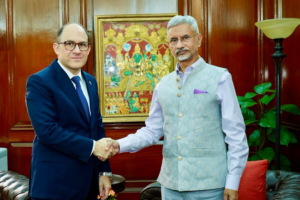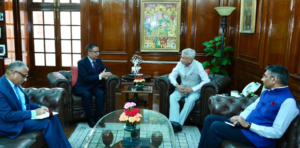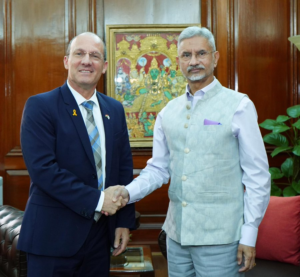Over 40% youth across world demand learning for future employment, finds global survey
New Delhi, Aug 11 (PTI) As many as 40.5 per cent youth in the 10-24 age group expressed an interest for learning opportunities, education and employability reflecting a strong interest in job stability, financial and material security and independence, a global survey claimed.
This result was reflected across all age groups, but was highest among those aged 15-19 (47.2 per cent) and among adolescent girls (49.2 per cent), who frequently cited the need for “learning opportunities” and “quality education”.
The survey asked 7,13,273 respondents in the age group of 10-24 to express in their own words, what they want most for their own well-being. India constituted the largest population of respondents, comprising 17.2 per cent of the total sample.
“What Young People Want”, a massive survey project undertaken by PMNCH a global alliance for the health and well-being of women, children and adolescents and hosted by the WHO, shared its interim results through a public dashboard launched ahead of the UN International Youth Day on August 12.
Other common needs and concerns expressed by young people included “safety and a supportive environment” (cited by 21.2 per cent overall) and “good health and optimum nutrition” (16.3 per cent).
The youngest survey respondents had specific concerns: The need for “safety and a supportive environment” was cited by 11.0 per cent of respondents aged 15-19, 8.4 per cent of those aged 20-24, and 1.8 per cent of those aged 10-14.
Adolescent boys want “clean water” and “good roads”, while adolescent girls wanted “free sanitary pads” in addition to “clean water”.
Results of the survey in real-time are available through the What Young People Want Digital Dashboard, (https://whatyoungpeoplewant.whiteribbonalliance.org/en) enabling users to analyse the data and trends by topic, gender, age, and country.
The dashboard available in multiple languages, including Indian languages like Sanskrit, Hindi, Bhojpuri, Tamil, Gujarati, Bengali etc. is an open access public tool for students, young change-makers, national policymakers and journalists seeking to understand and address demands of the youth at national and global levels.
The dashboard’s data is directly collected from survey responses and not sourced from official country statistics or data sets.
“The Global Forum for Adolescents will be a key milestone for the 1.8 Billion Young People for Change campaign, bringing together youth and adolescents, advocates, global leaders and decision-makers at a pivotal moment for kickstarting policy shifts and program re-design at the country level,” said Helga Fogstad, Executive Director, PMNCH.
“Adolescence is a critical stage of development with positive outcomes not only for adolescents but for people of all ages. Ensuring adolescents’ well-being is critical to the achievement of a sustainable future for all, requiring cross-sectoral approaches that respond to the multi-faceted nature of their development. Effort spent to ensure adolescent well-being today, especially for females, will yield a triple dividend for adolescents now, in their future lives and for generations to come,” she said.
“What Young People Want has empowered us to break the silence and raise our voices for a better future,” said Saksham Parimal, a young mobiliser for the 1.8 Billion Young People for Change campaign and a policy engagement Fellow at the YP Foundation in Bihar, India.
“We no longer feel unheard or overlooked. This campaign has given us the platform to demand action on issues that matter to us and our community. Together, we’re forging a path towards positive change, ensuring that our health and well-being are prioritised. We are the architects of our future, and with What Young People Want, our dreams are turning into reality,” he said.






